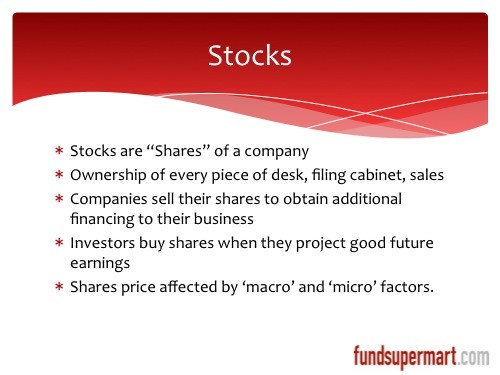3 Important Differences Between A REIT and A Business Trust That Investors Have To Know
Post on: 3 Апрель, 2015 No Comment

3 Important Differences Between A REIT and A Business Trust That Investors Have To Know
The Singapore stock market is home to quite a wide selection of real estate investment trusts (REITs) and business trusts. In fact, Singapore’s stock exchange is also one of the few exchanges in the world which allows the listing of business trusts.
Within Singapore’s market benchmark the Straits Times Index (SGX: ^STI). there are already three trusts amongst its 30 constituents. The trusts include Ascendas Real Estate Investment Trust (SGX: A17U). a REIT, and Hutchison Port Holdings Trust (SGX: NS8U). a business trust.
It might be easy to lump a REIT and business trust together and view them similarly. But, there are actually important differences between the two types of securities that investors have to know before they invest in them.
1. Legal structure
Unlike a normal corporation, both business trusts and REITs are managed through a trust deed with the trustee having full legal ownership of the trust’s assets instead of the trust’s unitholders.
The trustee of a business trust is considered the trustee-manager and so it’s the same entity which owns and manages the assets on behalf of the unitholders of the business trust. Meanwhile, a REIT requires a trustee to hold the assets and a separate manager to manage the assets for unitholders. The trustee for a REIT must be a licensed entity approved by the authorities.
Unitholders can also choose to remove the manager of a REIT if there’s a vote on the matter and more than 50% of the votes say yes on the move. As for a trustee-manager of a business trust, it can only be removed if 75% of votes from unitholders are in favour of such a move.
2. Differences in leverage
According to the “Code on Collective Investment Schemes,” a REIT is only allowed a limit of 35% for its gearing ratio. A REIT can boost its gearing ratio to 60% if it obtains a credit rating from rating agencies (these credit restrictions might be altered in the future ).
Business trusts on the other hand, are not required to subject themselves to any borrowing limit. It is thus important for unitholders to keep an eye on the gearing ratio of a business trust as the level of leverage employed might get out of hand. There have been instances of business trusts overstretching themselves, with the experience of First Ship Lease Trust (SGX: D8DU) being a good example .
In this sense, business trusts might be seen to be riskier entities than a REIT since there’re no hard limits on how much the former group can borrow.
3. The level of distributions
Another key difference between a business trust and a REIT is that the former is is not obligated to distribute any of its income while a REIT must pay out 90% of its “distributable income” under the Income Tax Act. So for investors looking for stable yields, a REIT might be considered a “safer” investment in this sense since a REIT has to pay a distribution.
Foolish Summary
A collection of real estate might be bundled up as a business trust instead of a REIT – there are no restrictions on the matter. But, an investor has to realise that, there are fundamental differences between the two structures even if they do own the same type of asset. Investors should take note about these key issues before investing in any of the two.
Click here now for your FREE subscription to Take Stock Singapore. The Motley Fool’s free investing newsletter. Written by David Kuo. Take Stock Singapore tells you exactly what’s happening in today’s markets, and shows how you can GROW your wealth in the years ahead.
The Motley Fool’s purpose is to help the world invest, better. Like us on Facebook to keep up-to-date with our latest news and articles.
Get FREE Issues of TAKE STOCK
Want to keep up with our investing thoughts as they develop? Don’t miss a beat! Just drop your email in the box below and we’ll keep you up to date.
By submitting your email address, you consent to us keeping you informed about updates to our website and about other products and services that we think might interest you. You can unsubscribe at any time. Please read our Privacy Statement and Terms of Service .
The information provided is for general information purposes only and is not intended to be personalised investment or financial advice. Motley Fool Singapore contributor Stanley Lim doesn’t own shares in any companies mentioned.
The Singapore stock market is home to quite a wide selection of real estate investment trusts (REITs) and business trusts. In fact, Singapores stock exchange is also one of the few exchanges in the world which allows the listing of business trusts.
Within Singapores market benchmark the Straits Times Index (SGX: ^STI). there are already three trusts amongst its 30 constituents. The trusts include Ascendas Real Estate Investment Trust (SGX: A17U). a REIT, and Hutchison Port Holdings Trust (SGX: NS8U). a business trust.














